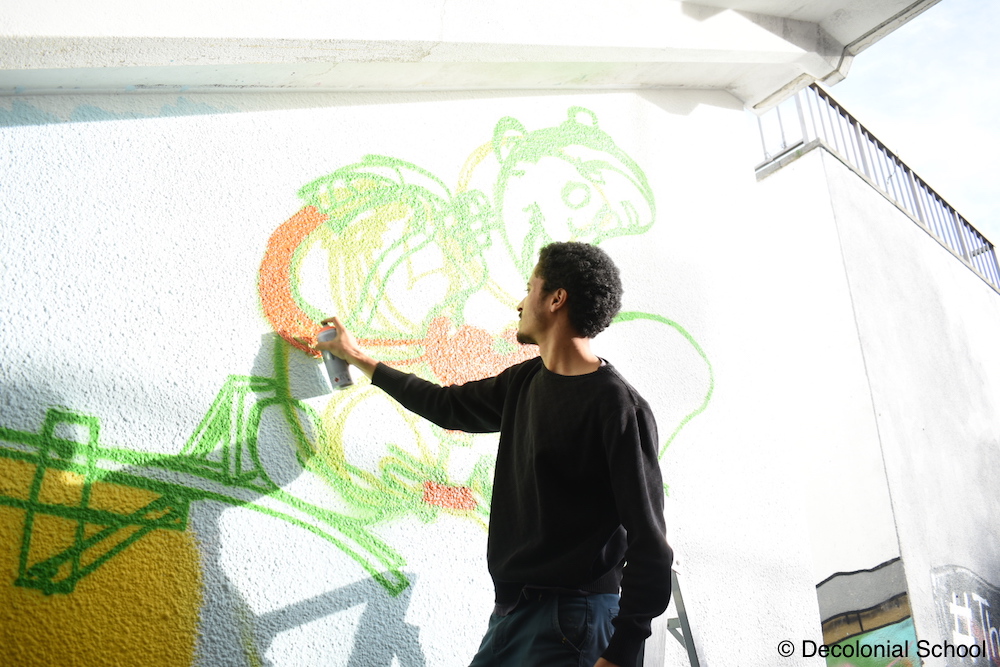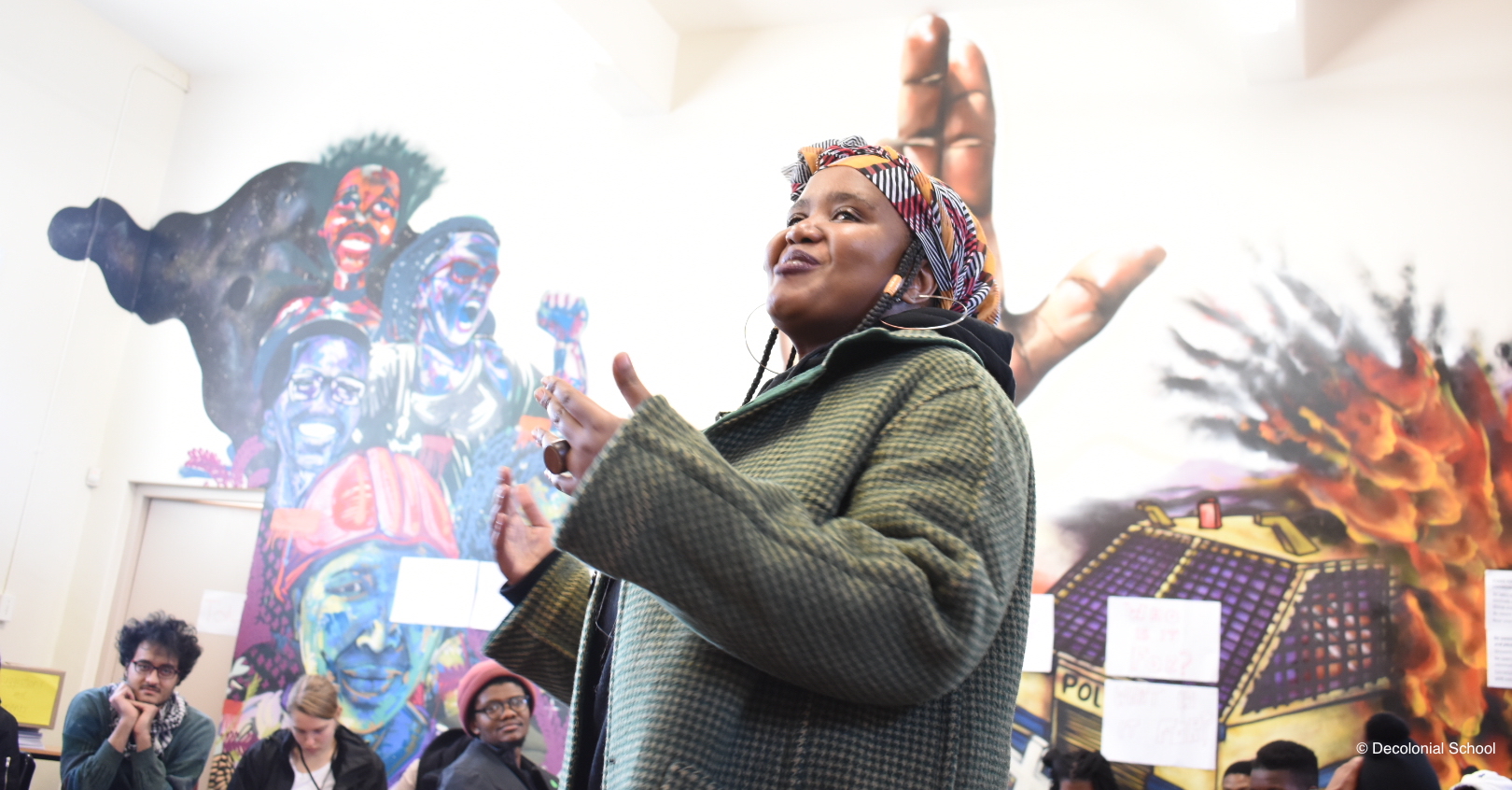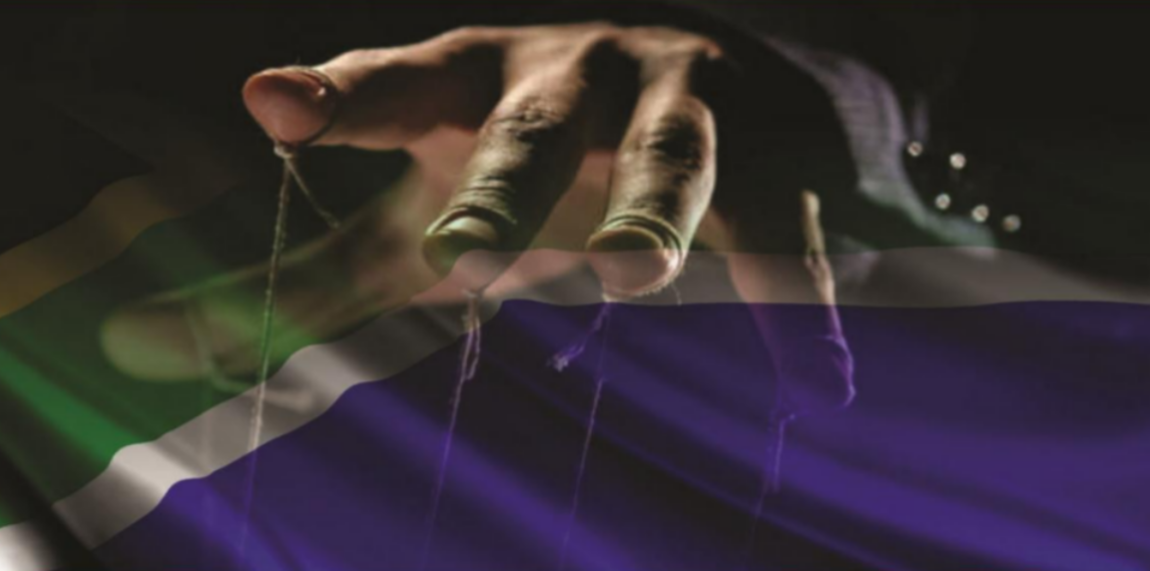The Decolonial School hosted at the University of Cape Town (UCT) has received mass attention over the last week. This attention, however, had very little to do with the actual content of the school or its intention of reimagining the knowledge project. The interest was not centred on the diverse group of high school learners, academics, students, workers and activists coming together to discuss matters of justice, knowledge, meaning or land. The attention wasn’t even directed at some of well-known facilitators featuring over the week – such as Tembeka Ngcukaitobi, Elelwani Ramugondo, Joel Modiri, Lungisile Ntsebenza and Leigh-Ann Naidoo. No, what caused the media storm was that for an hour each day, black students wanted a space to debrief, reflect and exist outside of the white gaze. Thus it was that in a series of events focused on the lasting impact of colonisation, the feelings and fears of the descendents of settler colonialists was at the centre of attention.
Ciaran Heywood, one of the organisers of the event said the irony of the backlash illustrated the very reason of why a black-only space was desired in the first place.
“Part of the decolonial project is about recognising how colonialism centred whiteness in every aspect of life. The decentring of that and allowing unapologetic space for black people to openly and honestly reflect on their experiences should be a given. The outrage at the thought of not being included in everything demonstrates how some white people are refuse to place others’ struggles beyond their discomfort,” said Heywood.

Although UCT officially mandated that the Decolonial School supper be open to all, no white people attended the supper on Monday. During the day white attendees at the Decolonial School organised among themselves to remain absent for the supper out of respect for the space and its intended purpose.
“I thought it was commendable. I see it as a show of solidarity that they understand it’s not about segregation, but about not forcing people into situations and allowing black people the agency to choose how and when we’re comfortable with sharing our stories,” said Heywood.
Online discussion brought to light that black-only spaces are not alien to post-apartheid South Africa. Between 1998 and 1999 a project called BLAC, an arts based response to the challenges of of divided Cape Town, held a series of nine discussion forums annually. The forum had a multidisciplinary format covering topics of heritage politics, feminist poetry, hip hop and more. For the first two years these sessions were only open to black cultural workers, artists and academics. One of the original organisers for BLAC, Zayd Minty, commented that the forums were seen as immensely productive and beneficial to its participants.
“It started with a lot of anger and pain being shared and everyone in the room understood it because they had all experienced it, no one shut that dialogue down. It was a vital space for this because everyone found out that others were experiencing the same things and were dealing with the same challenges. After a few sessions we were able to begin to talk about strategies. It was a powerful space for me and I know for a number of others. It gave a confidence that would not have come had we had it opened and had to deal with white fragility and guilt,” wrote Minty.
A POC Supper At UCT’s Decolonial School Is Causing White Tears
The Decolonial School is a space imagined by UCT postgraduates and alumni, particularly those who were in the midst of birthing the decolonial project that began in 2015 and rocked the higher education sector both nationally and abroad. During the #RhodesMustFall occupation in 2015 specific times were set aside by student leaders and academics where racialised or gendered caucuses were seen as useful for focused discussion and open dialogue that on issues that were impossible to address in racially charged public settings. Like with BLAC this approach followed from Black Consciousness teachings of South African struggle icon, Steve Biko, who argued that forced multiracialism was both inauthentic and regressive to the ends of authentic integration.
Heywood said that he and other black attendees found the supper very fruitful.
“The supper itself was beautiful, but so was the whole day. We connected and spoke on what we’d learned in the day, what moved and left an impact on us. We’re aware that those who’ve made the most noise about the supper already against the Decolonial School from the beginning. But their disruption backfired in the end because the space was everything we knew it would be,” said Heywood.
The Decolonial School is taking place each day until Saturday the 30th of June, from 8am until 10pm. Sessions are free and open to all in as long as the purposes and intention of the space is respected.
Featured image by Mohammed Jameel Abdulla.









